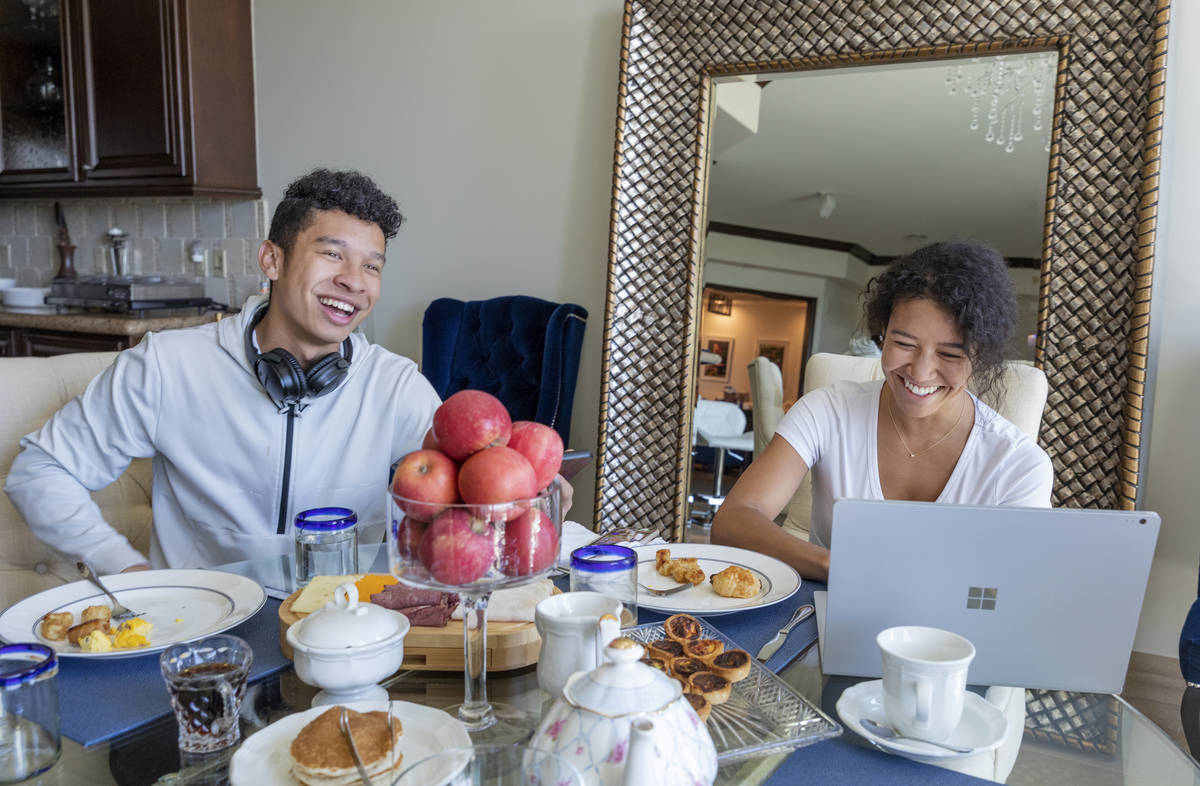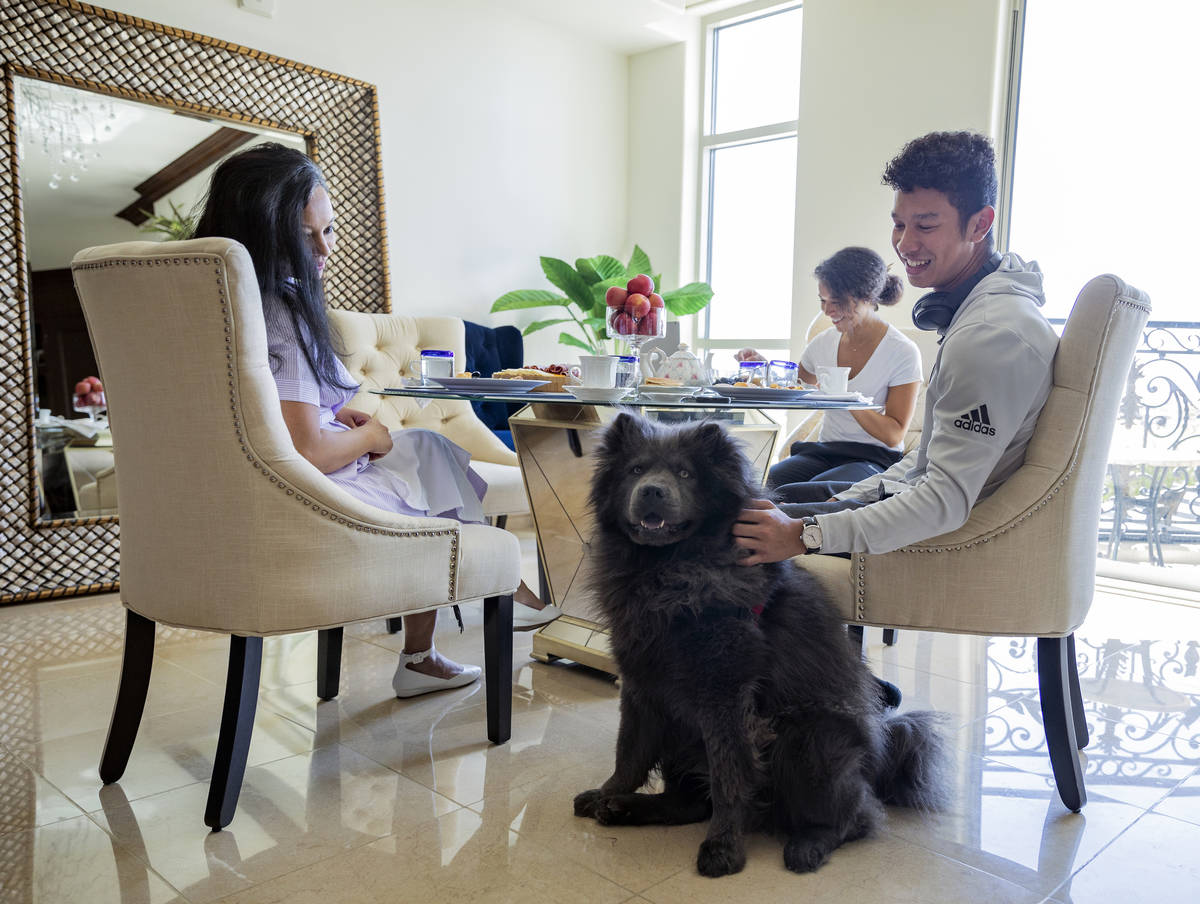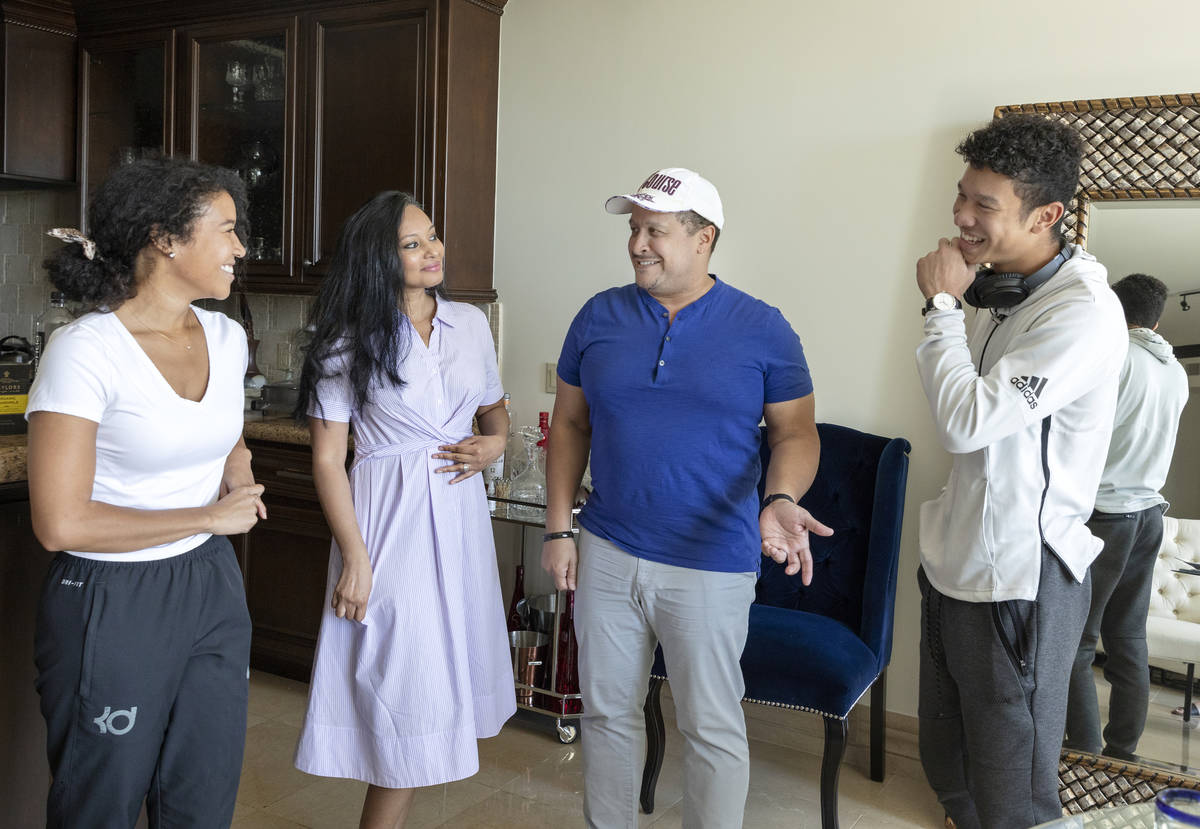Pandemic may accelerate trend of adult children moving back home
When Michael Williams’ two children left for college, he didn’t think he would have the chance to live with them again.
Then he got the phone calls in mid-March. His daughter, Amber, 25, in California and his son, Lucas, 21, in Michigan would be coming back to Las Vegas to hole up with him and his wife as schools, businesses and public services were shut down across the country during the coronavirus pandemic.
The Las Vegas father was elated.
“Normally you don’t have this much time to spend time with your adult children,” Michael Williams said. “We never dreamed this would happen.”
Across the country, young adult professionals and college students have returned in greater numbers to live with their parents in recent years, according to U.S. Census Bureau data. The trend has been particularly noticeable in those in the 25-34 age bracket, where the percentage has risen from a low of 13.5 percent for males and 7 percent for females in 2003 to 20.4 and 13.1 percent, respectively, in 2019.
Many experts say the new coronavirus pandemic will only accelerate that trend.
Part of the temporary migration is driven by the economic downturn, according to Stephen D. Benning, an assistant professor of psychology at UNLV. With an unemployment skyrocketing, many young adults are out of work and in need of an economic safety net, he said.
“It reflects the extremity of the times in which younger people find themselves,” Benning said. “(The migration) is a response to an extreme circumstance that we haven’t seen in a century.”
Others in good financial standing may be seeking comfort and a sense of safety and stability during an uncertain time, he added.
Growing relationships
Amber Williams, a 2013 graduate of Faith Lutheran Middle School and High School, moved to the Los Angeles area for college and works as a data analyst for the Los Angeles Rams. Faced with the opportunity to work from home, she opted for her hometown and her family rather than her studio apartment.
“Vegas isn’t being hit as hard,” she said, adding that California’s stay-at-home orders are more stringent. “I can go on walks here. I need that at least for my sanity.”
Coming back to live with her dad has given her a second chance at growing her relationships, especially with her brother, a student at the University of Michigan.
“I’ve gotten to know him more and see who he is developing as a young man,” she said. “I feel like I never understood how much work he was putting into his studies. I’m very proud to see how much effort he was putting into it.”
For Michael Williams, the pause gives his children a chance to get more acquainted with his wife, Tanuja Williams. The two got married last year.
During the day, the Williams family works near the kitchen. In the evenings, they hike or watch movies. On the weekends, they break out the board games and go golfing.
“It’s been nice to have them here,” he said. “My wife and I are newlyweds, and we didn’t expect to have this time with both of them.”
Ground rules
Communication is key to living with parents again, especially those who have been out of the house for years, according to Benning. To counter uncomfortable tension, families should be quick to devise reasonable ground rules.
“A curfew for a 25-year-old likely won’t go over well,” he noted.
Even months into the pandemic, it is not too late to negotiate rules.
“It’s still possible to have discussions with their parents about their living situations and things they would like to see changed,” he said, advising parties use “I”-centered language to avoid casting blame.
“Some other people may be dealing with a lot of emotional challenges,” he said. “It is expected. Be explicit about those reactions, rather than having it stuffed and bottled.”
Contact Alex Chhith at achhith@reviewjournal.com or 702-383-0290. Follow @alexchhith on Twitter.


































